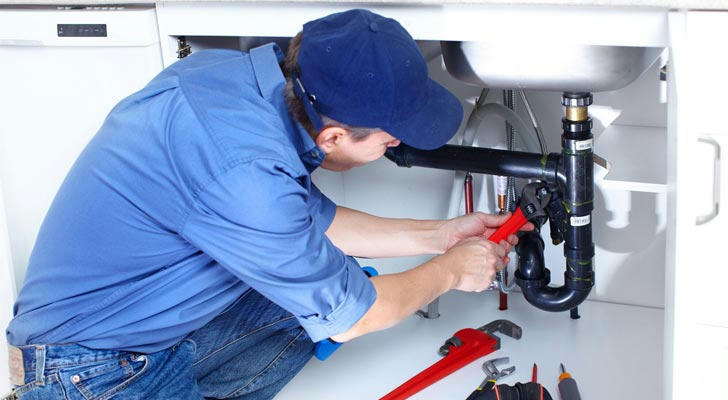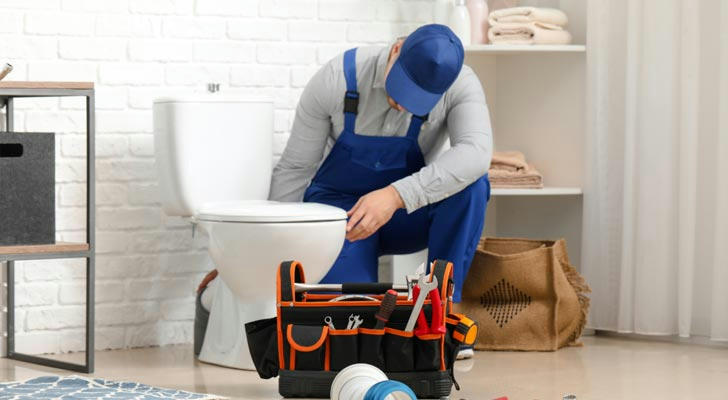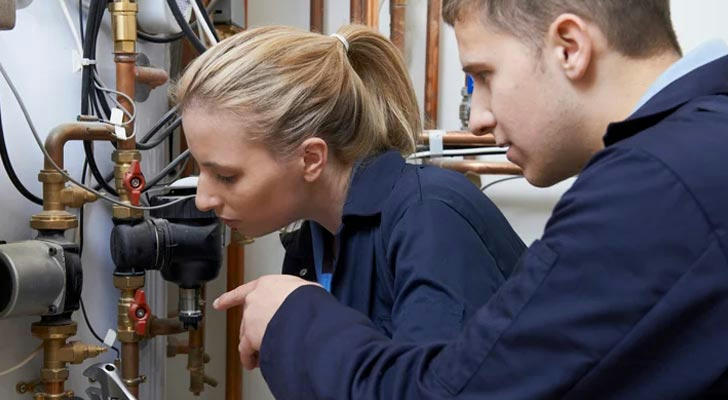Plumbers in short supply a certificate can open up a high-Income life
In recent years, the demand for skilled trades has seen a significant surge across the United States. Among these, plumbing stands out as one of the most essential and resilient professions. The increasing need for certified plumbers has led many to reconsider the traditional paths of career development. This article explores why plumbing is gaining renewed attention, the role of certification, and how individuals have transformed their lives through this trade.

The Growing Need for Skilled Plumbers
Plumbing systems are the backbone of every modern structure—residential, commercial, or industrial. From installing new pipelines to maintaining complex water systems, plumbers ensure the safe and efficient operation of vital infrastructure. As older professionals retire and fewer young people enter the trade, a labor gap is forming.
According to a report by the U.S. Bureau of Labor Statistics, employment in plumbing is projected to grow faster than average over the next decade. Several factors contribute to this trend:
- Aging Infrastructure: Much of America’s water and sewage systems were built decades ago and require regular maintenance or replacement.
- New Construction Projects: Ongoing urban development and housing expansion continue to generate new plumbing work.
- Environmental Regulations: The push toward water conservation and green plumbing technologies has increased demand for updated skills.
These trends suggest a steady pipeline of opportunities for qualified professionals who can meet evolving technical standards.
Why Certification Matters

In a trade like plumbing, practical skills are essential—but so is formal training. Certification serves as a benchmark of competence, safety, and professionalism. Most states require plumbers to be licensed, and employers often prefer candidates who have completed a recognized apprenticeship or training program.
Certification typically involves a combination of classroom instruction and hands-on experience. Topics often include:
- Pipefitting and installation
- Blueprint reading
- Water supply systems
- Local and national building codes
- Safety procedures and hazard control
Beyond meeting legal requirements, certification boosts credibility and opens doors to more complex and higher-paying projects. It also signals a long-term commitment to the trade, which can be attractive to employers and clients alike.
Case Study: From Warehouse Worker to Plumbing Technician
Carlos Mendoza, a 32-year-old from San Antonio, Texas, spent over a decade working in warehouses. Tired of inconsistent hours and limited advancement, he enrolled in a local plumbing certification program. Within 18 months, he was working with a licensed contractor, assisting with new home installations.
“I didn’t realize how much technical knowledge plumbing involved,” said Mendoza in an interview with a local newspaper. “It’s more than just fixing a leak—it’s understanding systems that people rely on every day.”
Two years into the job, Carlos had learned to troubleshoot complex issues and had started supervising smaller projects. Today, he enjoys a stable schedule and a growing portfolio of professional achievements.
A Versatile and Respected Trade

Plumbing is not limited to residential work. Certified professionals find opportunities in commercial construction, municipal infrastructure, healthcare facilities, schools, and industrial plants. Each sector offers unique challenges and learning experiences.
- Commercial and Industrial Plumbing: These projects often involve larger-scale systems and require familiarity with advanced technologies like hydronic heating or pressurized air lines.
- Service and Maintenance: Many certified plumbers work in ongoing maintenance roles for corporations, universities, and government agencies.
- Specialized Fields: Some go on to specialize in fields like gas pipe installation, fire suppression systems, or water purification.
Such variety allows individuals to find a niche that aligns with their interests and strengths, making plumbing a flexible career path.
Case Study: Transitioning from Military to Plumbing
After serving eight years in the Navy, Samantha Hill returned to civilian life unsure of her next move. With a background in mechanical operations, she was drawn to trades that involved hands-on work. A counselor at a veterans’ transition center recommended plumbing.
Samantha enrolled in a state-approved training program and later joined a plumbing company that handled medical facility renovations. Her attention to detail and experience working under pressure made her an asset to the team.
She now mentors other veterans considering skilled trades and regularly speaks at local job readiness workshops. Her story illustrates how structured training and clear certification pathways can ease career transitions.
The Role of Apprenticeships

For many, the path to becoming a certified plumber begins with an apprenticeship. These programs typically last four to five years and combine on-the-job training with formal classroom instruction. Apprentices are paid while they learn and gradually take on more responsibilities.
This model has several advantages:
- Earn While You Learn: Apprenticeships offer income during training, reducing financial barriers.
- Hands-On Experience: Real-world exposure prepares individuals for the demands of the job more effectively than classroom learning alone.
- Mentorship: Working alongside experienced plumbers provides valuable guidance and support.
In many states, completing an approved apprenticeship program is a requirement for licensure. It also builds a strong foundation for future specialization or business ownership.
Case Study: High School Graduate to Business Owner
Michael Turner began his plumbing career straight out of high school. Instead of enrolling in a traditional four-year college, he applied for an apprenticeship through a local union in Ohio. Over time, he developed skills in both residential and commercial plumbing.
After obtaining his license, Michael worked independently for several years. Eventually, he launched his own plumbing business focused on environmentally friendly systems. Today, his company employs eight people and serves clients across three counties.
Michael’s path shows how plumbing can be more than just a job—it can be a platform for entrepreneurship and innovation.
Overcoming Outdated Perceptions

Despite its importance, plumbing is sometimes viewed as a less prestigious career choice. This perception often stems from outdated stereotypes that fail to reflect the modern realities of the trade.
Today’s certified plumbers use advanced tools, diagnostic software, and digital design programs. They interpret complex blueprints, apply engineering principles, and stay updated on evolving regulations. The job demands both physical and mental agility.
Trade schools, industry associations, and community colleges have made efforts to modernize the image of plumbing. By highlighting the technical knowledge involved and the critical nature of the work, these institutions aim to attract a broader and more diverse range of candidates.
The Impact of Technological Advancements
Like many fields, plumbing has evolved with technology. Innovations such as smart water systems, energy-efficient appliances, and remote leak detection are becoming industry standards. Plumbers with up-to-date training are better positioned to install and maintain these systems.
Training programs now include modules on:
- Green plumbing practices
- Digital diagnostic tools
- Automated irrigation systems
- Remote monitoring technology
Keeping pace with these changes is essential. Professionals who pursue continuing education and stay informed about technological developments will remain competitive and adaptable.
Conclusion: A Solid Foundation for the Future
Plumbing continues to be a vital, respected, and evolving trade. As demand grows, the need for certified professionals is only expected to increase. Those who pursue certification gain access to a career that offers stability, practical value, and room for advancement.
Through structured training, hands-on experience, and a commitment to ongoing learning, individuals from all walks of life can enter this field and build a meaningful future. Real-world stories—from military veterans to aspiring entrepreneurs—show that the path is both achievable and rewarding.
The combination of technical skill, problem-solving, and public service makes plumbing a profession that not only supports individual growth but also contributes to community well-being. For those willing to invest the time and effort, certification can serve as the first step toward a long-term, satisfying career.
